{english below} Para los que hemos crecido escuchando punk y hc en la década de los 80, Revelation Records lo era todo. Ayudó a definir un sonido y una actitud que rápidamente se extendieron por todo el globo, grupos como Youth of today , Gorilla biscuits o Judge, crearon un imaginario, una música y una actitud que ha prendido y se ha diversificado en diferentes estilos. Y esto es lo importante de Revelation Records: su visión y su capacidad de ofrecer un relato alternativo al del punk predominante (derechos de los animales, antirracismo, antidrogas) que para muchos de nosotros llegó en el momento adecuado y nos ayudó a pensar que hay otras formas de relacionarnos y que el cambio empieza por uno mismo.
Revelation es la discográfica que hizo que el NYHC fuera popular en el resto del mundo. ¿Qué crees que queda del sello NYHC hoy en día?
No estoy seguro de que eso sea correcto. Creo que Revelation ayudó con los recopilatorios que publicamos en 1987 y 1988 y algunos otros discos, pero el NYHC ya era popular mucho antes de que empezáramos el sello y sigue siendo popular hoy en día.
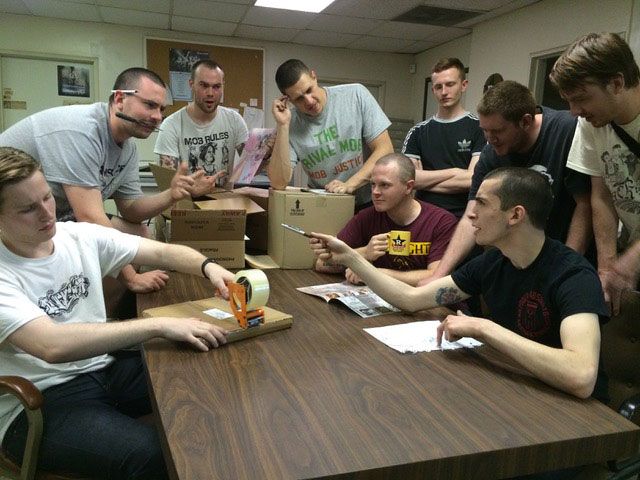
Comenzaste la discográfica con Ray Cappo en el ’87, ¿cómo era NY en esos años? Parece que la escena era más salvaje.
En el momento en que comenzamos, el sello hardcore en general estaba resurgiendo y parte de la misión de Youth Of Today y Revelation, era documentar eso y toda la nueva música que salía tan rápidamente. En cuanto a la ciudad y la escena, sí, NY fue definitivamente un lugar más salvaje en muchos sentidos. Sin embargo, no he vivido cerca de allí en más de veinte años, por lo que no soy la mejor autoridad.
¿Cómo crees que ha evolucionado la escena a lo largo de los años?
En 1989 parecía que Nirvana, Fugazi y algunas otras bandas unificaron a casi todos los que se aventuraban fuera del hardcore simple y una nueva generación de hardcore comenzó a formarse en ese momento. Parecía que se estaban formando muchos subgéneros diferentes, que aún tocaban juntos y aceptaban a los demás, más o menos como a mediados de los 80.
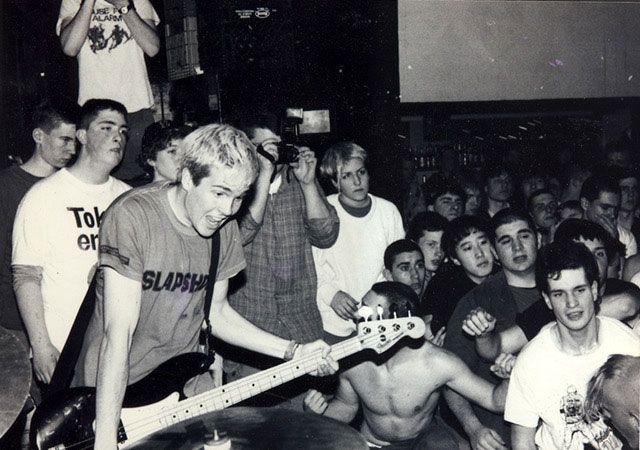
En los años 90 hubo un cambio en el sonido más tradicional del HC con la aparición del Emocore. ¿Cómo fue ese cambio de paradigma musical?
Creo que eso sucedió más tarde si se habla de bandas como Texas Is The Reason y algunas de las bandas con las que tocaron. El término creo que vino de Revolution Summer en DC, sin embargo, no soy una autoridad en todo eso.
El cambio de milenio y la popularización de Internet causaron la desaparición de muchas compañías discográficas. ¿Cómo vivió Revelation ese tiempo?
Recuerdo que pensé que Napster no era justo con discográficas como la nuestra y que también me sentía impotente para hacer algo al respecto. Fue interesante escuchar a amigos y familiares hablar sobre la descarga de música, y me sentía como si fuera el malo por tener un sello y todos querían todo gratis. Como a la mayoría, la muerte del CD y el auge de lo digital han reducido nuestro negocio. Sin embargo, hacemos todo lo posible para mantener las cosas en marcha.
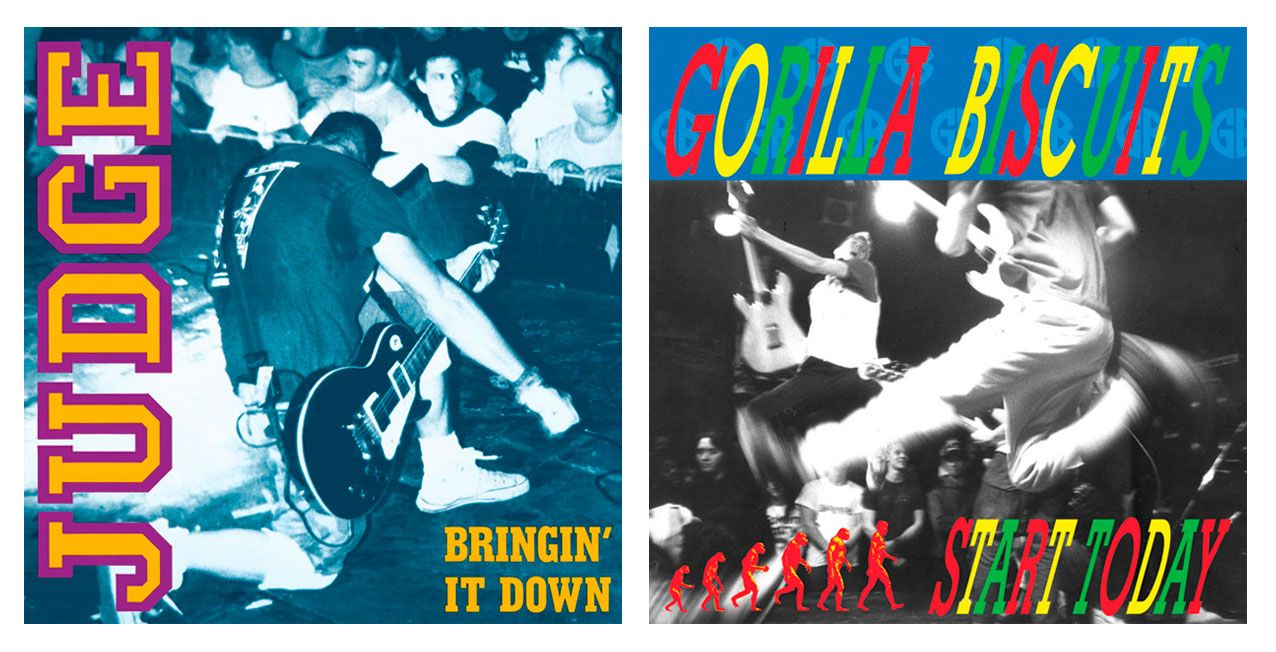
El retorno del vinilo ha salvado a muchas compañías discográficas. La gente en general prefiere tener algo físico en sus manos. ¿Crees que el regreso del vinilo está resuelto o será una moda pasajera?
El vinilo ha ayudado un poco, pero sigue siendo mucho menos popular de lo que solía ser y sin ningún otro formato que realmente interese a la gente, realmente lo único que vendemos que es la música real. Es mucho más pesado, frágil y más caro de fabricar y enviar, por lo que es una cosa difícil con la que sobrevivir. Creo que la popularidad está disminuyendo, pero el vinilo nunca desapareció, así que creo que habrá gente a la que le gustarán los discos durante un tiempo.
¿Qué ventajas ves en el formato digital?
Si estás hablando de CD vs vinilo, supongo que las ventajas son el costo de fabricación y el hecho de que no tienes que darles la vuelta mientras los reproduces. También solían ser fáciles de copiar en tu ordenador. En cuanto a la descarga y transmisión digitales, las ventajas serían la comodidad, sin costos de envío ni de fabricación, y que esa distribución solo esté limitada por el alcance de Internet.
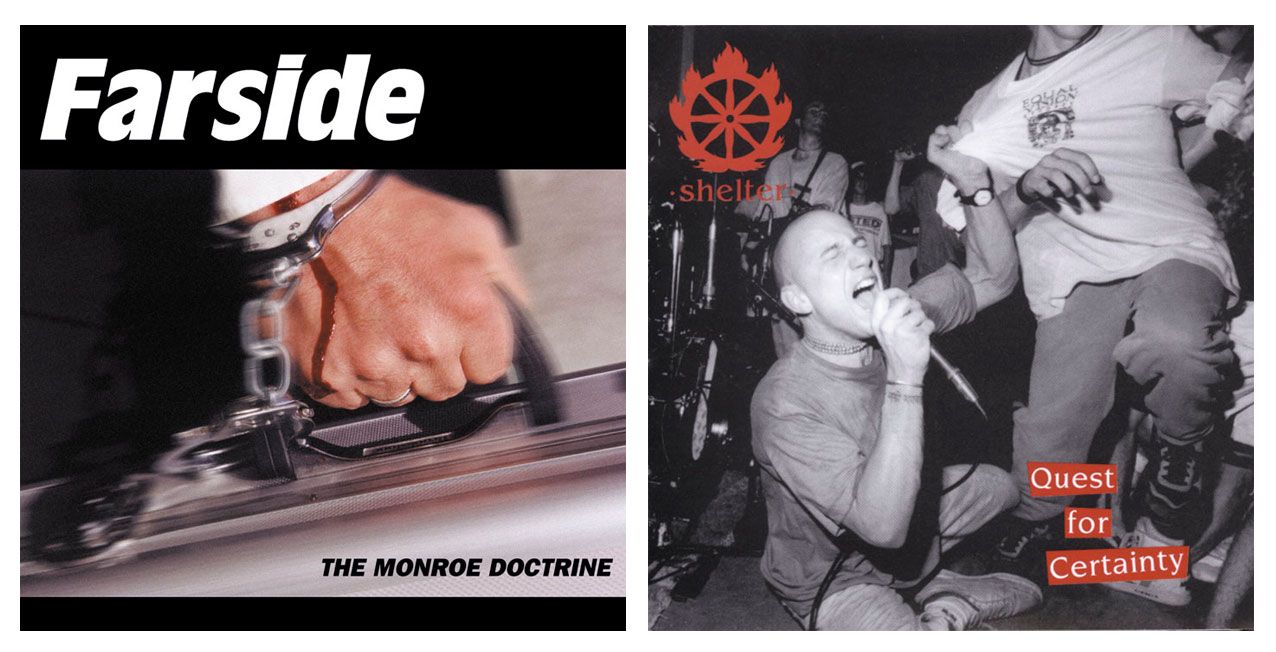
Discogs de alguna manera ha favorecido el coleccionismo, ¿te sorprendió el precio alcanzado por Chung King de Judge?
Sí. Es increíble.
Al final, una ocupación de tantos años se convierte en una parte fundamental de tu vida, ¿qué podemos encontrar acerca de tu identidad en Revelation?
Ha definido gran parte de mi vida, pero creo que la verdadera identidad duradera de Revelation proviene de Ray y las bandas que formaron el sello. También es una parte importante de mi vida, pero cualquiera que me conozca sabe que las bandas son realmente la definición de Revelation. Adam Lentz, Greg Brown y el resto de nosotros intentamos mantener las cosas funcionando. Y probablemente dirían que mi actitud relajada es lo más importante que he aportado a Revelation, para bien o para mal. Los sitios web son un reflejo de eso, claramente.

El HC puede ser una etiqueta muy difusa, pero muchos de nosotros vimos un retorno a los orígenes con la edición de The Rival Mob, ¿ha sido una manera de volver al HC actual?
Definitivamente ha sido una gran banda para trabajar. Siempre hemos intentado trabajar con las bandas de hardcore actuales, pero según quién esté trabajando en el sello en ese momento, eso podría significar cosas diferentes. Pero sí, muchas personas parecen sentir Shook Ones, Down To Nothing, Rival Mob, Give, hasta los nuevos lanzamientos de Primal Rite y Torso son lo que quieren ver de nosotros.
Un sello discográfico es un mediador cultural, hace una selección, ofrece un punto de vista. ¿Cómo ha sido la búsqueda de esa identidad? ¿Ves una coherencia?
Una vez que Ray dejó el sello, eso se ha manejado con mucho menos cuidado, pero sí, ese parece ser el valor que puede ofrecer un sello aparte de la mecánica de producción de discos. Creo que ha habido una coherencia, aunque como mencioné anteriormente, dependiendo de la gente aquí, puede cambiar de estilo bastante.

¿Cómo es la actividad hoy en Revelation?
Ha sido bastante similar desde el principio, solo un poco menos de volumen ahora. Pero un montón de caos y cajas entrando y saliendo por las puertas. Aunque generalmente es divertido. Tuvimos un fin de semana realmente increíble la semana pasada con Gorilla Biscuits haciendo algunos conciertos en California.
Después de 32 años, ¿cuáles son los momentos más memorables de tu día a día en Revelation?
Eso también podría ser un libro por sí solo, demasiados … He trabajado con un pequeño grupo de misma gente durante más de 15 años en la mayoría de los casos, por lo que los momentos memorables de la vida cotidiana giran en torno a ellos, su vidas, su humor, sus gustos musicales, etc., junto con los de las bandas y otros sellos con los que trabajamos.
En estos momentos, ¿cuál crees que puede ser la contribución de Revelation a la escena punk?
Ojalá solo proporcionar algunos de los discos de las bandas que gustan a la gente y que desempeñen cualquier parte pequeña que podamos para apoyar y mantener una escena para el grupo relativamente pequeño de personas que aman el punk y el hardcore y las ramas que provienen de él.


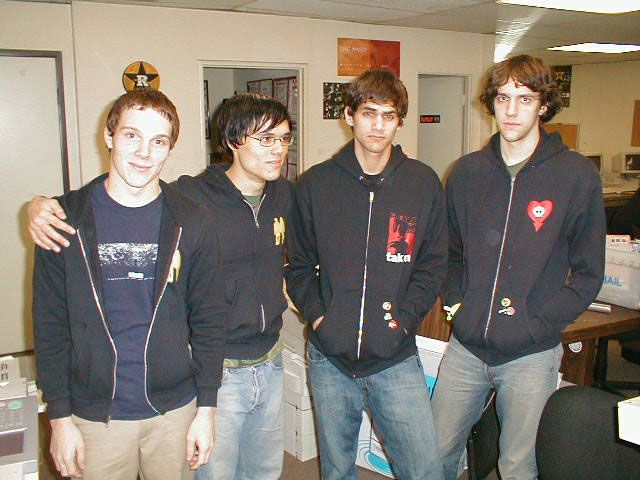


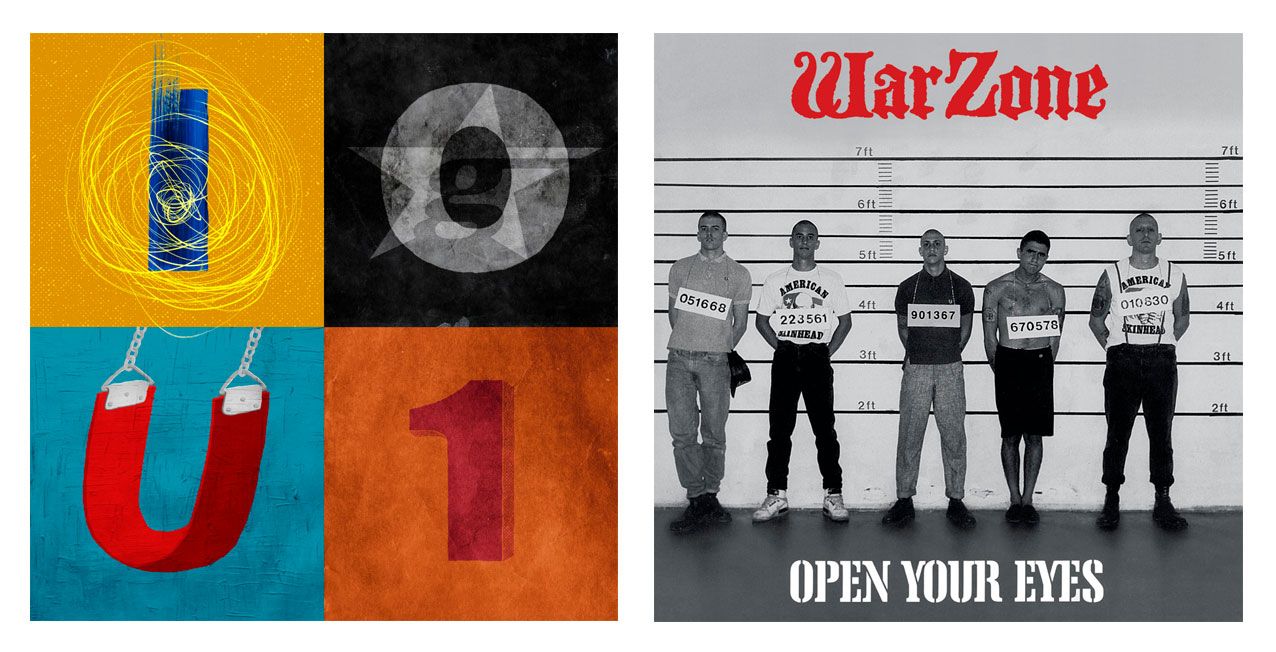
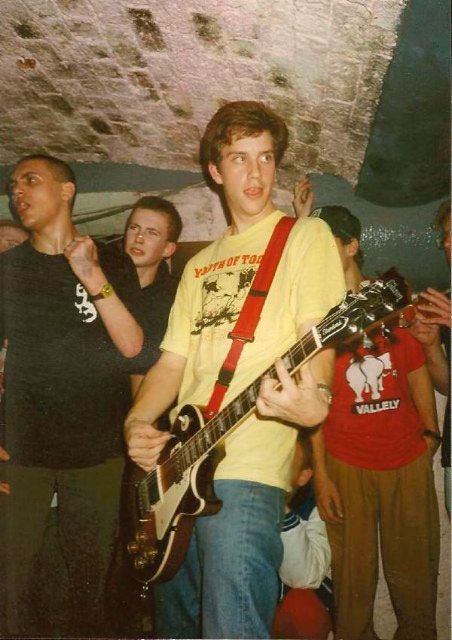

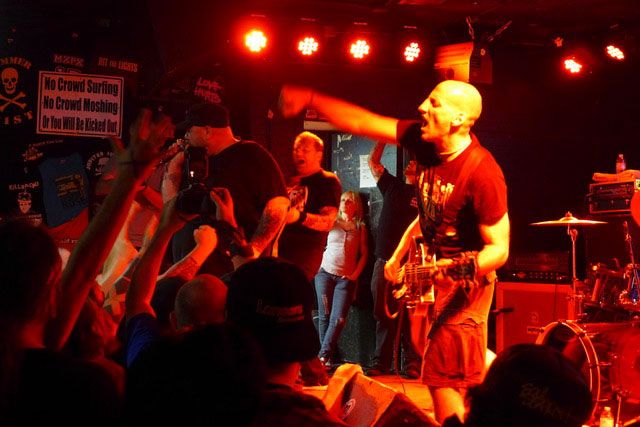

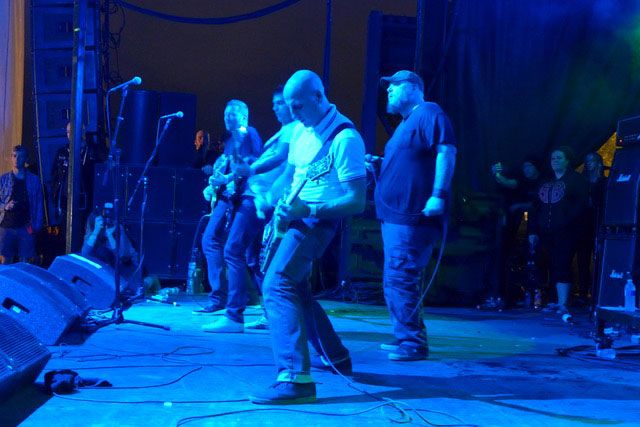
English:
Revelation Records. The flame is still burning.
For those of us who have grown up listening to punk and hc in the 80s, Revelation Records was everything. It helped to define a sound and an attitude that quickly spread all over the globe, groups like Youth of today, Gorilla biscuits, Judge or Agnostic front, created an imaginary, a music and an attitude that has ignited and diversified into different styles And this is what is important about Revelation Records: its vision and its ability to offer an alternative narration to that of the predominant punk (animal rights, anti-racism, anti-drug) that for many of us arrived at the right time and helped us to think that there is other ways of relating and that the change begins with oneself.
Revelation is the label that made the NYHC popular in the rest of the world. What do you think is left of the NYHC label nowadays?
I’m not sure that’s right. I think Revelation helped with the compilations we put out in 1987 and 1988 and some other records, but NYHC was already popular long before we started the label and is still popular today.
You started the label with Ray Cappo in ’87, what was NY like in those years? It seems that the scene was wilder.
At the time we started the label hardcore in general was having a resurgence and part of the mission of Youth Of Today, and Revelation, was to document that and all the new music that was coming out so quickly. As far as the city and scene, yes, NY was definitely a wilder place in a lot of ways. I haven’t lived near there in over twenty years though, so I’m not really the best authority.
How do you think the scene has evolved over the years?
The answer to this could probably be a book, and unfortunately, I don’t know enough about the current scene to contribute much to that. I can talk a little about the evolution in the years before and after Revelation started. From the early to mid-80s, there was a splintering of the hardcore scene, musically at least. Revolution Summer in DC, the post-punk sound forming all over the world, and of course crossover/metal becoming popular all seemed to be happening around 1984-1985. Youth Of Today and quite a few other bands (Justice League, Verbal Assault, Underdog, Uniform Choice, to name just a few) wanted to keep hardcore as they saw it going strong. They banded together, talked about the music they liked, played shows and really kept things going and eventually by 1986 there were a lot more bands that identified as hardcore bands. Straight Edge was a part of this also, but not universally. Then by the late 80s, there seemed to be another “Revolution Summer” kind of thing happening, but it was a different splintering. There was bit of a backlash against what a lot of people saw as a whitewashed, clean-cut and maybe even conformist version of hardcore that its popularity brought in, possibly because of the limited subset of influences that people had when the scene grew quickly. This point could be talked about by other people more informed than I am I’m sure. But to state it simply from my point of view, the 90s hardcore scene started to take shape in 1989. For me and maybe others, Ray becoming Krishna had a major effect. Bands like Quicksand, Burn, and Born Against were part of a branching out that seemed to be happening. And by 1989 it seemed like Nirvana, Fugazi and a few other bands unified pretty much everyone who was venturing outside of straightforward hardcore and a new generation of hardcore started to form at that point. There seemed to be a lot of different sub-genres forming and they still played together and accepted the others, pretty much as it was in the mid-80s.
In the 90s there was a shift in the more traditional sound of the HC with the appearance of the Emocore. How was that change of musical paradigm?
That seemed to be happening later in the 90s if you’re talking about the bands like Texas Is The Reason and some of the bands they played with. The term I think came from Revolution Summer in DC though, I’m not an authority on all that.
The turn of the millennium and the popularization of the internet caused many record companies to disappear. How did Revelation live that time?
I remember thinking that Napster wasn’t cool or fair to labels like ours, but also feeling kind of helpless to do anything about it. It was interesting to hear friends and family talking about downloading music, and I was feeling like I was the bad guy for having a label and everyone just wanted everything for free. Like most labels, the death of the CD and the rise of digital has made our business smaller. We do our best to keep things going though.
The return of vinyl has saved many record companies. People in general prefer to have something physical in their hands. Do you think the return of the vinyl is settled or will it be a fad?
Vinyl has helped a bit, but it’s still a lot less popular than it used to be and without any other format that really interests people, it’s really the only thing we sell that’s actual music. It’s a lot heavier, fragile, and more expensive to make and ship, so it’s a tricky thing to survive on. I think the popularity is waning, but vinyl never really went away so I think there will be people who like records for a while to come.
What advantages do you see in the digital format?
If you’re talking about CD vs vinyl, I guess the advantages are the cost of manufacturing and the fact that you don’t have to flip them over while playing them. They also used to be easy to copy to your computer. As far as digital downloading and streaming, the advantages would be convenience, no shipping or manufacturing cost, and that distribution is only limited by the internet’s reach.
Discogs in a certain way has favored collecting, were you surprised by the price reached by Judge’s Chung King?
Yes. It’s unbelievable.
In the end an occupation of so many years becomes a fundamental part of your life, what can we find about your identity in Revelation?
It’s defined a lot of my life, but I think the true lasting identity of Revelation comes from Ray and the bands that made the label. It’s a huge part of my life too, but anyone who knows me knows that the bands are really the definition of Revelation. Adam Lentz, Greg Brown, and the rest of us just try to keep the plates in the air. And they would probably say that my unhurried attitude is the biggest part of Revelation that I’ve brought, for better or for worse. The websites are a reflection of that, clearly.
The HC can be a very diffuse label, but many of us saw a return to the origins with the edition of The Rival Mob, has it been a way to go back to the current HC?
That’s definitely been a great band to work with. We’ve always tried to work with current hardcore bands, but depending on who is working at the label at the time, that could mean different things. But yes, a lot of people seem to feel Shook Ones, Down To Nothing, Rival Mob, Give, all the way through to the new releases from Primal Rite and Torso are what they want to see from us.
A record label is a cultural mediator, makes a selection, offers a point of view. How has the search for that identity been? Do you see a coherence?
Once Ray left the label, that has been a lot less carefully managed, but yes, that seems to be the value that a label can offer aside from the mechanics of producing records. I think there has been a coherence though as I mentioned above, depending on the people here it can shift in style quite a bit.
How is the activity today in Revelation?
It’s been pretty similar since the beginning, just a bit less volume now. But lots of chaos and boxes coming in and out the doors. Usually fun though. We had a really amazing weekend this past week with Gorilla Biscuits doing a few shows in California.
After 32 years, what are the most memorable moments of your day to day life in Revelation?
That also could be a book by itself, too many… I’ve worked with a small group of the same people for 15-plus years in most cases, so the memorable moments of day-to-day life mostly revolve around them, their lives, their humor, their musical tastes, etc., along with those of the bands and other labels that we work with.
In these moments, what do you think the contribution of Revelation to the punk scene can be?
Hopefully just to provide some of the records of the bands that people like and play whatever small part we can in supporting and maintaining a scene for the relatively small population of people who love punk and hardcore and the branches that come from it.